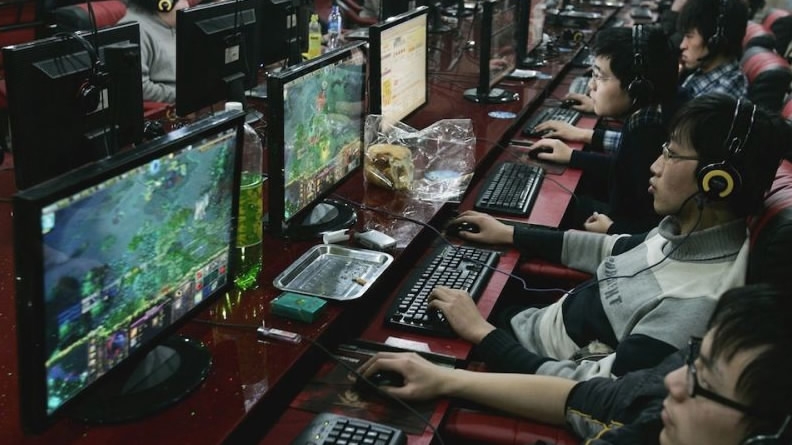
Business
16:56, 20-Dec-2017
Propelled by hit titles, gaming industry lunges forward
CGTN

China's gaming industry, a sector that has propped up company valuations of hundreds of billions of dollars, saw a bumper year in 2017, with explosively popular titles sweetening the sector to a value of 203 billion yuan, or 31 billion US dollars, despite repeated rapping from authorities on their addictive qualities.
The prospering sector grew by 23% last year, picking up pace after a three-year slowdown, showed a report published by an association affiliated with China’s media regulator Tuesday.
The brightening up comes as gamers' favorite genres are redesigned for their mobile phones, a shift allowing users to snatch a 10-minute gaming break on the go, and more frequently throughout their day.
Earnings from mobile games continued to expand this year with vast contributions from blockbuster titles such as Tencent’s Valor of Kings; Yinyangshi by Netease; and, more recently, mobile variations of Player Unknown Battleground, a survival game of shooting skill, developed by a Korean publisher.
Revenue from mobile games now account for nearly 60% of the total, a considerable step up from 2016, when just shy of half of the revenues were generated from mobile devices. Ninety-six percent of the games published this year were for mobile.
The same report last year showed that gamers on mobile devices were more inclined to pay—around half of the players surveyed last year reported that they spent more than 500 yuan boosting their powers in cyber battles each year. The increasing share of mobile players, combined with their propensity to have looser purse strings, has largely been the reason for a significant increase in overall revenue, even as the number of gamers remains mostly unchanged.
The number of active players was largely flat for a fourth consecutive year, inching upwards by a mere 5% overall to 58 million, as the number of players near a "saturation point," says the report. The small rise in mobile compensated for a sizable dip in the number of webpage game players.
China in May over took the US to be the “gaming capital of the world,” according to a report by London-based venture capital firm Atomico. The nation has witnessed the immense business potential the industry holds and has rolled out a series of policies promoting e-sports and gaming even as state media headlines chide players and developers alike for allowing games to consume large portions of their time and energy.

SITEMAP
Copyright © 2018 CGTN. Beijing ICP prepared NO.16065310-3
Copyright © 2018 CGTN. Beijing ICP prepared NO.16065310-3